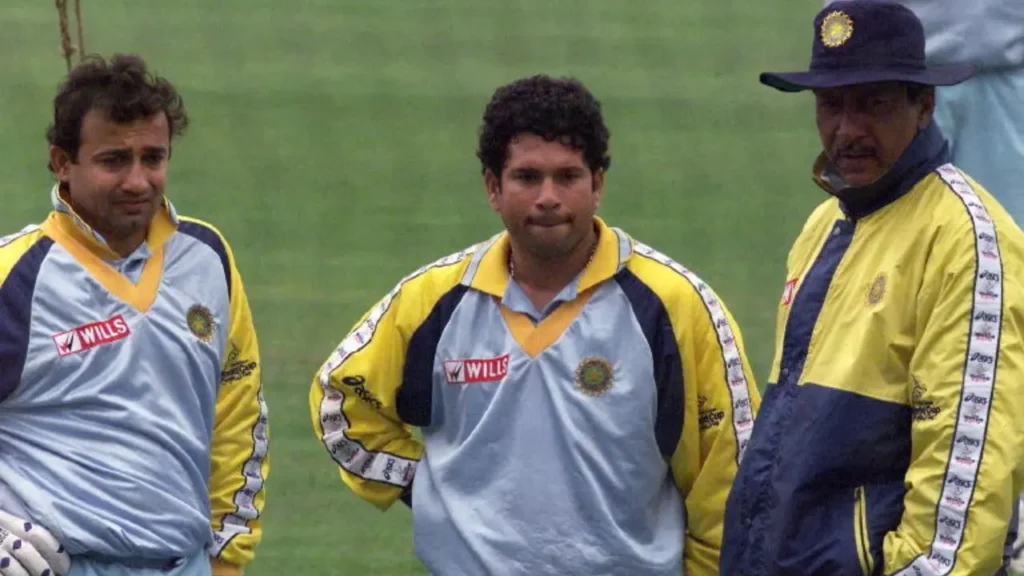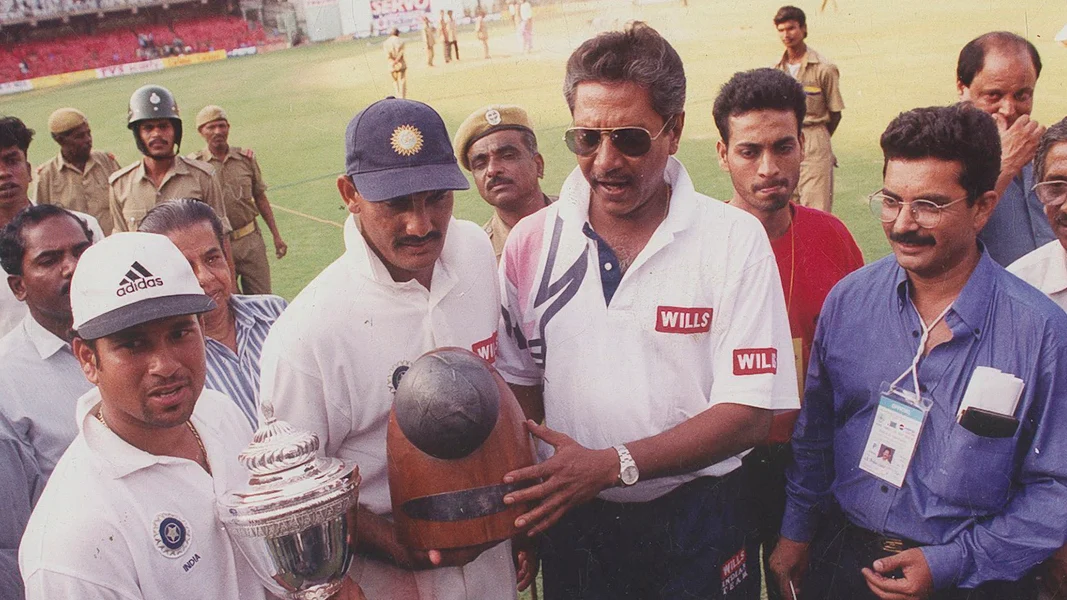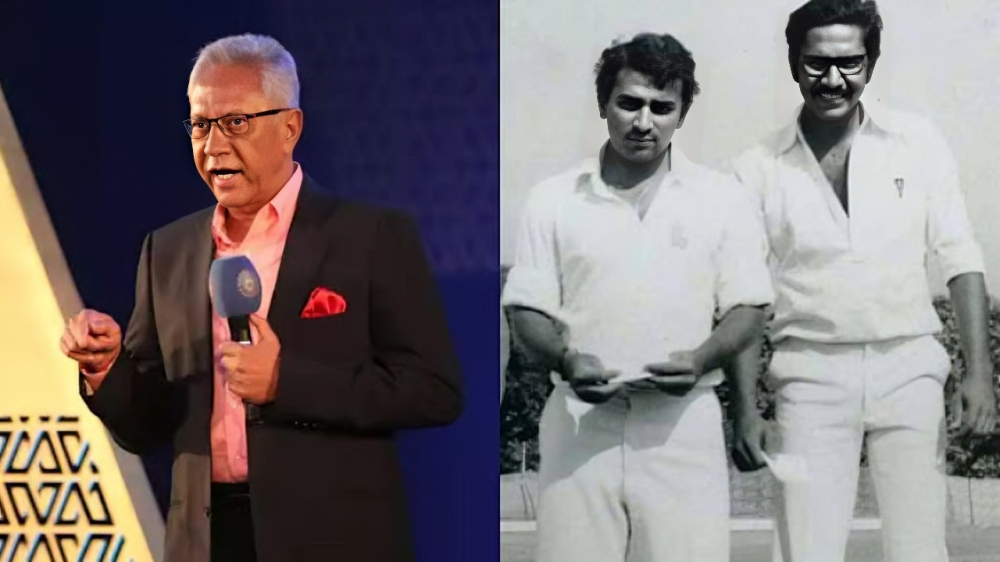Introduction
Anshuman Gaekwad, one of India’s legendary cricketing figures, was an instrumental figure in shaping Indian cricket as we know it today. Renowned for his unyielding style of cricket as a player and his coaching and administrative roles, Gaekwad left his mark on cricketers and the Indian cricket establishment. This blog explores Anshuman Gaekwad’s life and legacy while detailing his cricket journey, including his coaching tenure and his lasting mark on Indian cricket.


Anshuman Gaekwad : Early Life and Domestic Career
Anshuman Dattajirao Gaekwad was born on September 23 in Bombay (now Mumbai) into a cricketing family. His father, Datta Gaekwad, had served in India’s Test cricket team. Exposed to cricket early, Anshuman’s natural talent flourished.
Gaekwad made an impactful mark in domestic cricket with impressive performances for Baroda in the Ranji Trophy in the early 1970s. Renowned for his exceptional batting technique and dependability, he quickly established himself as an effective opening batsman, eventually earning selection to the Indian Test team.
Anshuman Gaekwad :Test Debut and Early Career
Anshuman Gaekwad made his Test debut against the West Indies in 1974. He faced their formidable pace attack and showcased the resilience and technique that would define his international cricket career. Early successes in difficult conditions highlighted Gaekwad’s ability to anchor an innings under stress.
A defining moment in Gaekwad’s career occurred during the 1976 Test series against the West Indies at Sabina Park. Despite facing hostile bowlers and injuries, Gaekwad recorded an unbeaten 81 runs. This innings in records is one of cricket’s finest performances.
Anshuman Gaekwad : Coaching Career: Shaping the Future


After retiring from active cricket, Anshuman Gaekwad transitioned seamlessly to coaching. His vast knowledge and expertise inspired future generations of cricketers. Taking over as coach of the Indian cricket team in the late 1990s, Gaekwad faced challenges and achieved success.
Gaekwad’s coaching philosophy focused on discipline, technique, and mental toughness. He believed in developing strong foundations among players while encouraging innovation and adaptability. Numerous young talents emerged under his guidance, becoming key figures in Indian cricket history.
Gaekwad was instrumental in India’s victory at the 1998 Coca-Cola Cup tournament in Sharjah. Everyone knows Sachin Tendulkar for his legendary performances, but Gaekwad paved the way for India’s triumph with his strategic acumen and leadership.
Anshuman Gaekwad: Administrative Roles and Contributions


Anshuman Gaekwad’s contributions extended beyond coaching. His insights and experience proved indispensable as a selector and advisor to the Board of Control for Cricket in India (BCCI). Policies implemented during his tenure had lasting effects on Indian cricket.
Personal anecdotes fill Gaekwad’s cricketing journey and speak volumes about his character and dedication. From his early domestic days to his coaching tenure, his story reflects perseverance, hard work, and a deep love for cricket. Gaekwad’s legacy includes mentoring players and shaping Indian cricket through his initiatives.
Anshuman Gaekwad: Influence on Modern Indian Cricket
Anshuman Gaekwad remains a powerful presence in modern Indian cricket. Young cricketers he coaches or mentors speak highly of him, respecting his influence on their careers and the greater cricketing fraternity.
Anshuman Gaekwad: Final Years and Battle with Cancer
Anshuman Gaekwad’s final years were marked by his courageous fight against blood cancer. Diagnosed at King’s College Hospital in London, he received financial assistance from BCCI for treatment. Despite his illness, Gaekwad maintained an unshakable spirit.
On July 31, 2024, Anshuman Gaekwad passed away in Vadodara, Gujarat, at age 71. His passing marked the end of an era in Indian cricket. Tributes poured in from across the cricketing world. Prime Minister Narendra Modi highlighted Gaekwad’s contributions as a player and coach, noting his lasting impact on sports history.
Anshuman Gaekwad: Legacy and Honors
Anshuman Gaekwad left behind a legacy epitomizing courage, tenacity, and unwavering commitment to cricket. Renowned for his defensive prowess, Gaekwad’s highest Test score against Pakistan at Jalandhar in 1982-83 is a testament to his unique playing style.
As a coach, Gaekwad achieved significant milestones, including leading India to second place at the 2000 ICC Champions Trophy. His strategic insights and motivational techniques were vital in building the careers of several young cricketers. Notably, under his guidance, Anil Kumble achieved his legendary 10-wicket haul against Pakistan at Feroz Shah Kotla in 1999.
Gaekwad’s administrative contributions were equally remarkable. He served as a national selector, the President of the Baroda Cricket Association, and a member of the BCCI Apex Council. His deep knowledge and persuasive influence significantly shaped Indian cricket during times of transition.
Recognizing his invaluable contributions, the BCCI honored Gaekwad with the prestigious C. K. Nayudu Lifetime Achievement Award in 2018. This accolade was a testament to his enduring impact on Indian cricket. In 2021, he published his autobiography, “Guts Amid Bloodbath,” offering insights into his cricket journey and experiences.
Anshuman Gaekwad: Personal Life and Family
Anshuman Gaekwad was more than just a cricketer; he was a family man deeply connected to his heritage. His father, Datta Gaekwad, was India’s oldest living Test cricketer until his passing in February 2024. Anshuman followed in his father’s footsteps, and his son, Shatrunjay Gaekwad, also represented Baroda in the Ranji Trophy. This continuity of cricketing excellence highlighted the Gaekwad family’s enduring legacy.
Despite his professional commitments, Gaekwad was known for his humility and grounded nature. His personal anecdotes reflect a life dedicated to cricket, marked by perseverance and a love for the game. Friends and colleagues often recounted stories of his dedication, such as practicing tirelessly in the nets or offering guidance to young players during informal sessions.
Anshuman Gaekwad: Gaekwad’s Philosophy and Mentorship


Anshuman Gaekwad’s coaching philosophy revolved around discipline, technique, and mental toughness. He believed that a strong foundation was essential for any cricketer, but he also encouraged innovation and adaptability. This balanced approach helped many players thrive under his mentorship.
For instance, Sourav Ganguly and Rahul Dravid, two of India’s cricketing greats, have often credited Gaekwad for his role in their development. His emphasis on mental toughness helped these players handle pressure situations with composure, which became a hallmark of their careers.
Gaekwad’s influence extended beyond technical skills. He was known for instilling values such as sportsmanship, integrity, and dedication in his players. This holistic approach to coaching ensured that his mentees not only became better cricketers but also exemplary individuals.
Anshuman Gaekwad: Challenges and Triumphs
Gaekwad’s journey was not without challenges. As a coach, he often faced criticism and pressure, especially during India’s inconsistent performances in the late 1990s. However, his resilience and unwavering belief in his methods eventually paid off.
One of his significant challenges was during the 1999 World Cup. India’s early exit from the tournament led to widespread criticism. Gaekwad faced this period with characteristic calm and focused on rebuilding the team. His efforts bore fruit when India clinched the Coca-Cola Cup in Sharjah later that year, showcasing his strategic acumen and leadership.
Anshuman Gaekwad’s Contribution to Women’s Cricket
An often-overlooked aspect of Gaekwad’s legacy is his contribution to women’s cricket in India. Recognizing the potential of women’s cricket, he advocated for better facilities, coaching, and exposure for female cricketers. His efforts helped in laying a foundation for the growth of women’s cricket in India.
During his tenure as an administrator, Gaekwad pushed for the inclusion of more women’s tournaments and ensured that female cricketers received the necessary support and infrastructure. His vision and efforts played a part in the gradual rise of women’s cricket, leading to the success stories of players like Mithali Raj and Harmanpreet Kaur.
Anshuman Gaekwad: Tributes and Reflections
Anshuman Gaekwad’s passing in July 2024 was a significant loss to the cricketing world. Tributes poured in from all quarters, reflecting the widespread respect and admiration he commanded. Prime Minister Narendra Modi’s condolence message highlighted Gaekwad’s immense contributions to Indian cricket and his legacy as a player, coach, and administrator.
Former cricketers, colleagues, and fans shared their memories and experiences, painting a picture of a man who was not only a cricketing legend but also a mentor, guide, and inspiration. His impact on the game, especially in India, is immeasurable.
Anshuman Gaekwad: A Legacy Beyond Cricket
Gaekwad’s legacy extends beyond his cricketing achievements. He was involved in various philanthropic activities, supporting initiatives related to education and healthcare. His commitment to giving back to society exemplified his character and values.
He often participated in charity matches and events, using his influence to raise awareness and funds for various causes. His contributions to society were recognized by several organizations, and he received numerous awards for his humanitarian efforts.
The Final Chapter
Anshuman Gaekwad’s battle with blood cancer showcased his indomitable spirit. Despite his illness, he continued to contribute to cricket and remained active in various capacities. His determination to fight the disease was a testament to his resilience and positive outlook on life.
The financial assistance provided by the BCCI for his treatment was a reflection of the high regard in which he was held. His fight against cancer, coupled with his contributions to cricket, inspired many and underscored the importance of resilience and determination in the face of adversity.
Conclusion
Although Anshuman Gaekwad may not have reached the same levels of fame as some of his contemporaries, his contributions to Indian cricket cannot be overstated. From player to coach and administrator, Gaekwad embodied the true spirit of cricket with unwavering dedication. His story serves as a reminder that true legends are measured by the legacy they leave behind and the lives they impact.
Gaekwad’s journey from a talented young cricketer to a revered coach and administrator is a testament to his passion, dedication, and resilience. His influence on Indian cricket is profound and lasting, making him a true unsung hero of the sport.
Anshuman Gaekwad’s life and career exemplify the values of perseverance, hard work, and love for the game. His legacy will continue to inspire future generations of cricketers and fans, ensuring that his contributions to Indian cricket are remembered and celebrated for years to come.




